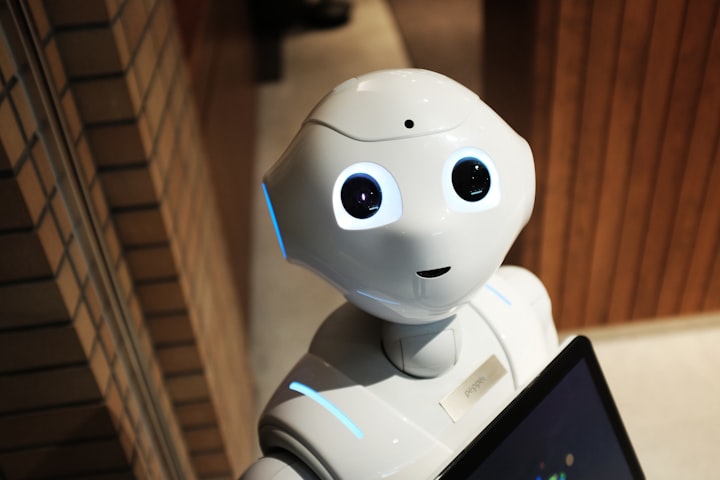Will humans fall in love with artificial intelligence?
Will humans fall in love with artificial intelligence?

In today's science fiction or film and television drama, human and artificial intelligence in love or affection is not a new bridge, such as "AI" "mechanical Ji" "real human" "Westworld" ...... story of the robot or elegant and beautiful, or graceful, really much more lovely than the average person. Even in reality, more and more people are getting hooked on virtual characters, such as the main character of the game, or even Siri and other assistant programs. In this way, more and more people began to worry: so on, people will not transfer the human emotions to the machine? If people no longer love others, but only love machines, what will happen?
This concern is justified, but many people believe that love is a great and sacred emotion that cannot be tainted by inferior machines - which is a bit narrow-minded. Human love is not God-given; from the perspective of evolutionary psychology, it was created and developed to ensure the continuation and evolution of the race.
Animals have evolved to a relatively high level and are hardly fully developed at the embryonic stage, unable to live independently from birth and thus requiring a certain amount of care. Therefore, in mammals and birds, mothers generally have a strong love for their children. For example, kangaroos grow up living in their mothers' nursery pouches, and cubs spend long hours with their mothers learning survival and hunting skills. Sometimes fathers are needed, as in the case of many birds whose parents hatch and feed together. For pack animals, because they must survive as a community, expressions of love are more prevalent and abundant, and their influence is more profound. Wolves (dogs) can fight and kill for their leaders, apes and monkeys will express their condolences to their sad companions, and elephants will even hold some kind of "funeral" for their dead members ...... Without such a mutual care, group life is difficult to maintain.
Human beings are also herd animals, and the sheer size and complexity of human society is unmatched by any other group of animals, so the love required is much greater and richer in type. So true human love is directed toward companionship, concern for the safety and well-being of others, rather than the coveting of objects. There are exceptions, of course, such as the love of animals that many people have. This love basically comes from parent-child love - the "cute" things we find cute, such as cats, dogs and pandas (which you can't raise yourself, of course), are loved because they are similar to young children, and raising them is much easier than raising children. It is much easier to raise them than children. In this case, people will treat their pets as children or companions, and still love them as some kind of "people".
When it comes to machines, it's hard for humans to truly love them. Appearance is a major obstacle. American psychologist Harry Harlow in 1930 did an experiment on rhesus monkeys. Harrow and his assistant designed two fake female monkeys: one was woven with wire, and a rubber pacifier, and one was a simulation of the Muppet monkey. They found that the baby monkeys were very fond of the latter and alienated the former, even if the former had milk to eat, the baby monkeys would return to the latter's embrace after eating milk. So bulky cold metal robots, such as "Star Wars" C-3PO and R2-D2, although because of the storyline of the arrangement and look very cute, but I am afraid that this shape of the robot can not get much human emotional support.
However, there are also highly simulated robots. This kind of robot made of biochemical materials, anthropomorphic appearance, today is still in its infancy, but in the future it is likely to have and human indistinguishable appearance, grooming and even can answer the robot. If such a "human" is introduced, our reason can distinguish, but emotional bonding is entirely possible. Maybe we will "love" such creatures to some extent, just as we love our pets.
But there are still some limits to that love, such as the uniqueness and irreplaceability of our love for people - if you love your parents, partner, and children, you wouldn't choose to replace them, even if you knew there were better people out there. But if a more advanced, upgraded version of a robot came out, would you want to replace the original one? I'm afraid most people would not hesitate to replace it. You might say that you love the robot's appearance and personality and don't want a better one, but even so, there are countless identical ones available. When it's damaged or even scrapped, you won't feel the same cone of pain as when a friend or family member is injured or dies - just pay for a new one.
On the other hand, robots are made for commercial purposes, and they exist to serve and please humans. Humans fall in love with others who are good to them because they understand that they are individuals different from themselves, with separate personalities, and that this "goodness" is precious, and we want to return it. Research on the evolutionary psychological origins of love also suggests that the ultimate realization of love lies not in the individual's psychological experience, but in action: sacrificing part or even all of one's self-interest to help and save others.
But for robots to serve themselves faithfully, we take them for granted, because without feeling their personality and independence, it is difficult to have true love. For robots, they can be bought for a price, and there is no need for us to sacrifice ourselves to help and save them. It is impossible to fully realize oneself in this kind of love is doomed. In this way, perhaps the worst case scenario is that we don't really love robots, but after being "spoiled" by them, it's hard to love our lesser siblings.
Of course, if, as in science fiction or film, there are robots with real self-awareness and independent thinking, in a sense, they have a human soul, of course, we can really love them - but then they love us or not, is a new question.
Love is a superior emotion that has evolved over millions of years and with which humanity has developed to this day, but today it is facing unprecedented challenges. We have no definite answers to the questions posed by new technologies, except that love for humanity gives us the courage to find them.





Comments
There are no comments for this story
Be the first to respond and start the conversation.